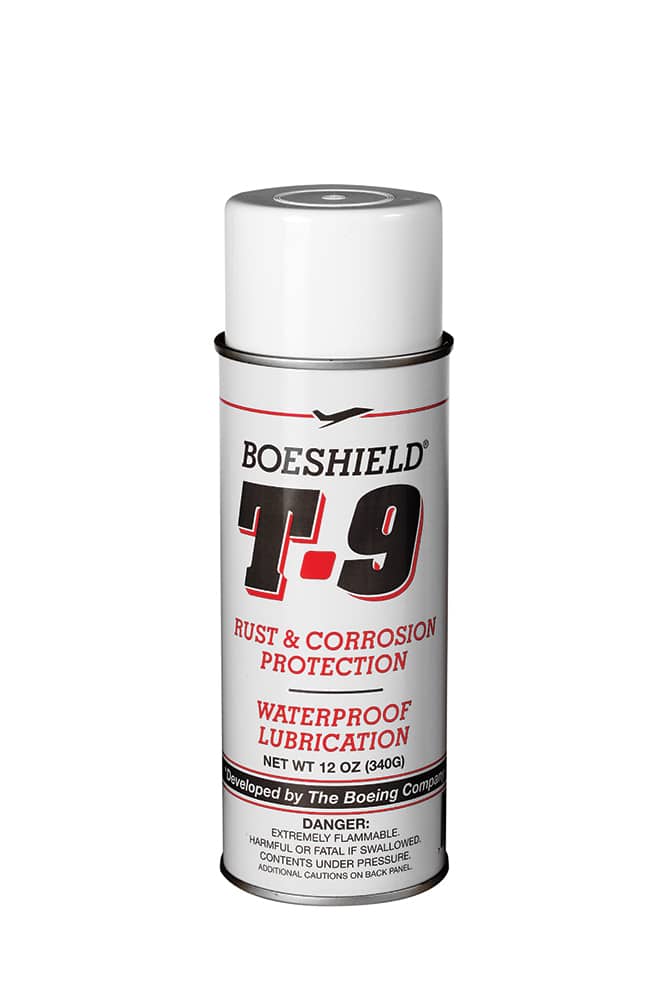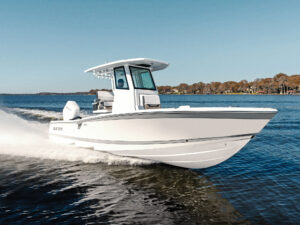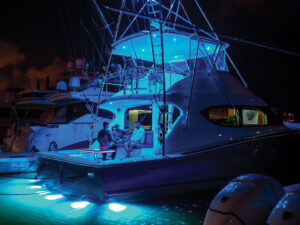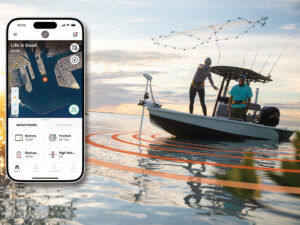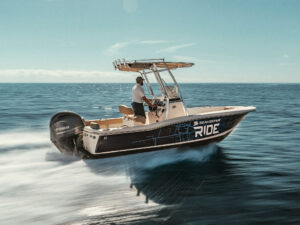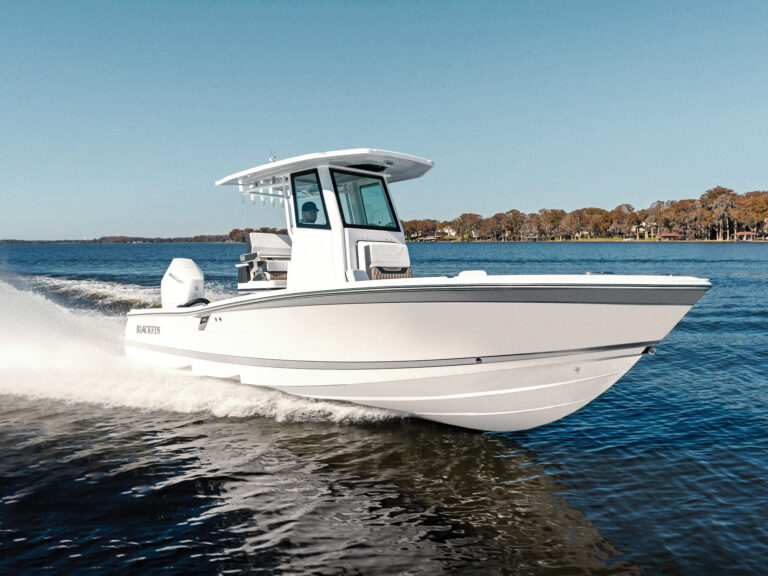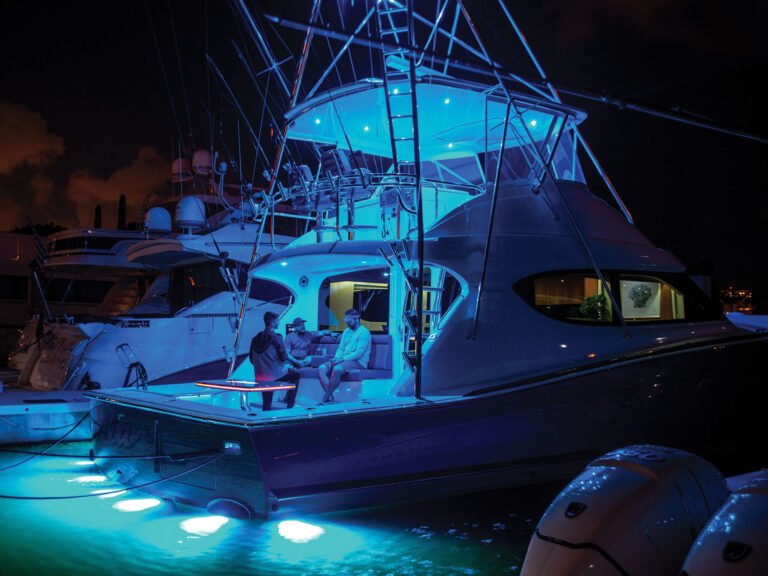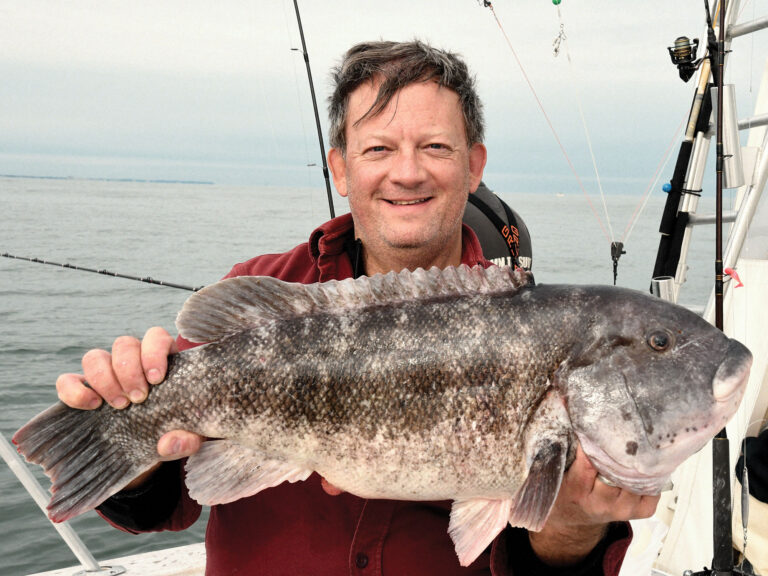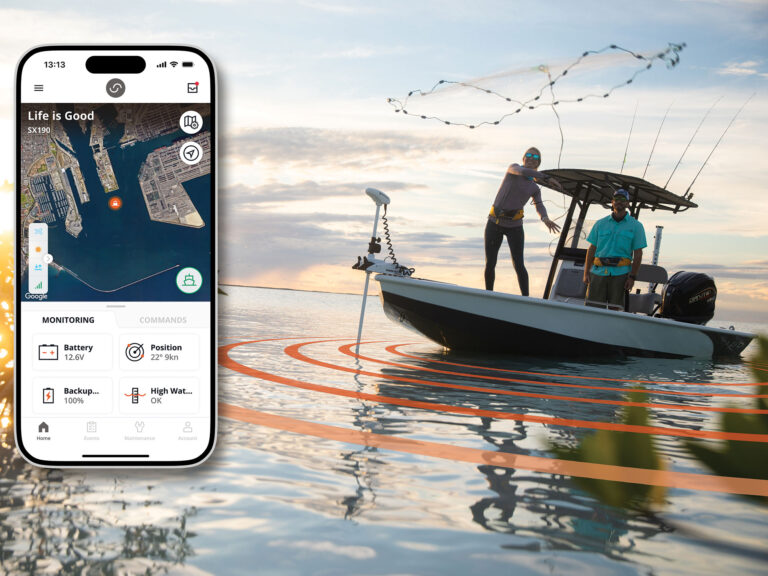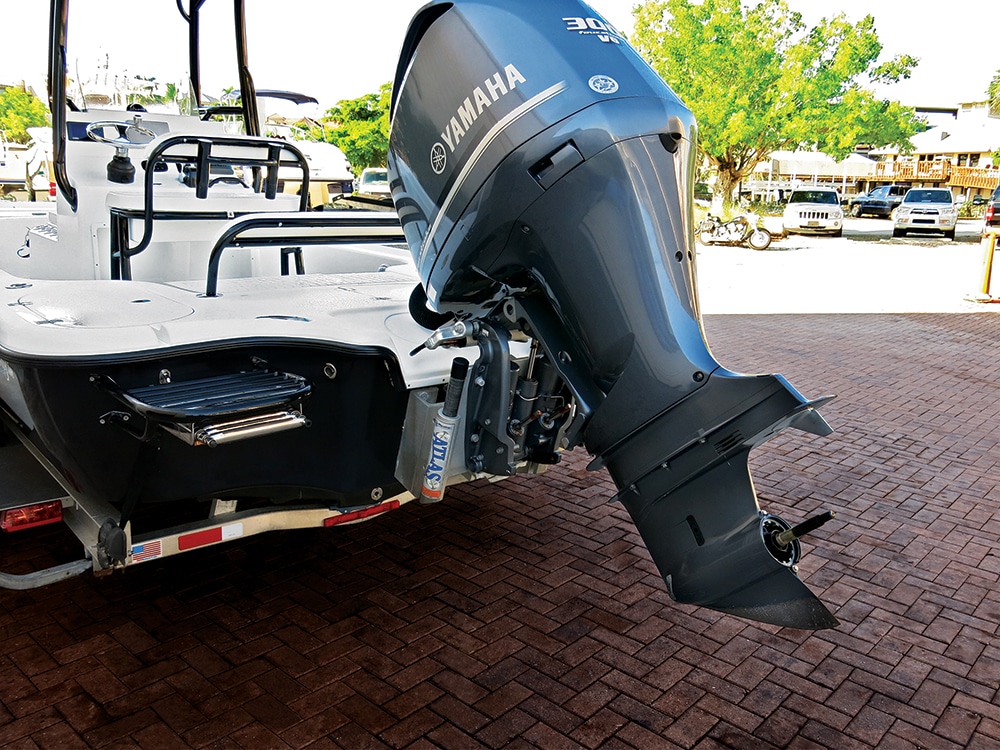
In an ideal scenario, most of us could fish any time, any tide, every month of the year. Unfortunately, life isn’t always that cooperative, which means we go whenever we can — with weather, work and family obligations permitting. And when those opportunities pop up, you want to take advantage of them, right? Making sure your boat is properly maintained on an annual basis will certainly help achieve that goal.
“We run pretty strong all the way through November,” says Loren Kortum, service manager for Legendary Marine, one of the Gulf Coast’s leading marine dealers, with four locations in Florida and Alabama. “Before that, we send out fliers to all our customers with coupons for discounted off-season service and static storage for those who won’t be using their boats over the winter months.”
As part of the recommended annual maintenance or in preparation for an extended lay-up, Kortum says his technicians do a complete outboard servicing. Oil and fuel filters are replaced, and a fuel stabilizer is added to the tank. Legendary uses Yamaha Ring Free, but other products that stabilize the gasoline and offset the harmful effects of ethanol gas include Star Tron, Sta-Bil and ValvTect. The engines should then be run briefly to circulate the additive throughout the fuel-flow system.
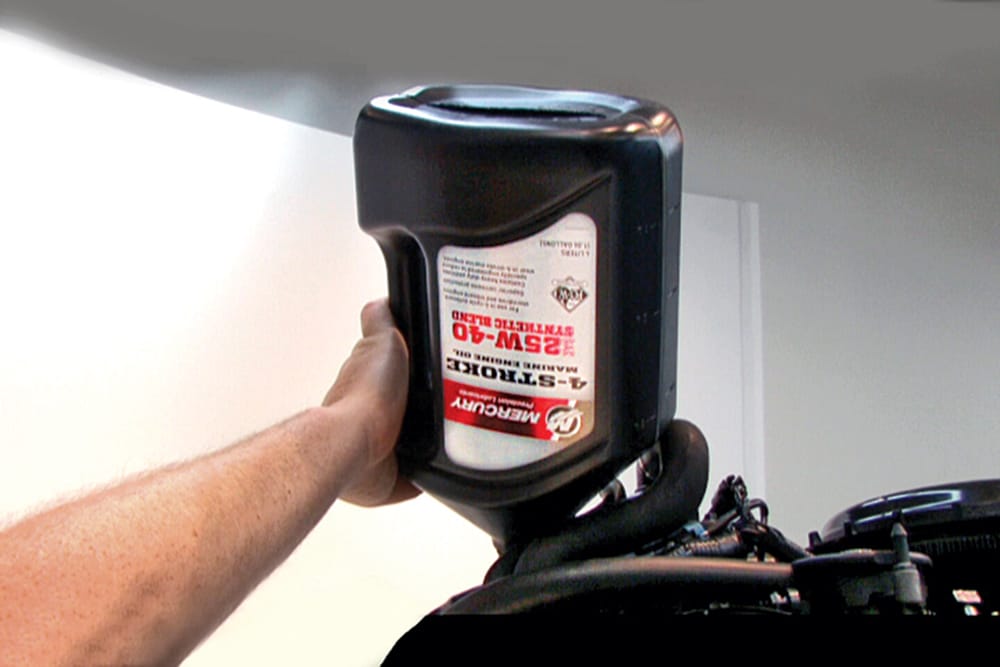
“Ethanol is not a huge problem if people use their boats regularly and change the factory-specified fuel filters often,” he says. “The important thing is to stop water from entering the engine so it’s only burning clean fuel.” Replacing filters at the recommended intervals is paramount in combating ethanol issues.
Legendary also replaces the lubricants in the transmission-gear casing so contaminants don’t remain inside the engine when it’s not in use for extended periods. Propellers are also pulled, and the old, dry grease is removed from the shaft for inspection. If contaminants are found or there’s a lower level than normal when draining the old lube, the gear case is pressure checked for a failed seal. A bad prop-shaft seal is usually caused by discarded fishing line.
The final step in the normal engine-maintenance routine is fogging the engine with Boeshield T-9 aerosol. This is a wax-based corrosion inhibitor that helps protect metal components.
Legendary’s annual maintenance program includes a free full-vessel inspection. All systems and components, such as lights, pumps and electronics, are checked for proper operation. Anything damaged or not working correctly is noted, and customers are offered discounts to replace components during the less busy off-season. The inspection checklist includes upholstery, canvas and fiberglass damage, which can be repaired or replaced on site.

Legendary Marine hires an outside company to wash all customers’ boats after servicing. Kortum recommends a thorough cleaning inside and out at least once a year — and especially before the boat is stored for long periods — to remove salt and contaminants. Other surfaces and materials like vinyl, brightwork, aluminum and clear plastic should be cleaned and treated at the same time. The boat’s exterior should be inspected for oxidation, cracks and blisters. If the gelcoat is damaged, this is the best time to have it repaired, compounded and detailed. A quality marine wax, like Meguiar’s, 3M, Collinite or Star brite should be applied for a lasting protective finish.
Florida and Gulf Coast anglers don’t have to contend with snow and ice like their mid-Atlantic and Northeastern counterparts, but many choose to shrink-wrap their boats if they won’t be used over the winter, Kortum says. The service is offered for boats stored inside the barn or outside on racks. All wraps should be vented to prevent mildew.
If a boat is stored outside, it should be positioned with the bow raised and the drain/scupper plugs removed. Batteries should be disconnected; if the boat is in a freeze-zone area, batteries should be removed and stored in a warm, dry place. Place batteries on boards, not directly on concrete floors in unheated buildings. Before reinstalling batteries, check fluid levels if they aren’t sealed, as well as the voltage. Replace batteries if they won’t hold a constant charge.

“Today’s electronic engines are so voltage sensitive, I always recommend disconnecting them at the end of the season,” Kortum says. “That way you avoid a drain and maintain the proper reference point.”
Boat trailers fall under the annual inspection requirement, too. Bearings should be greased or repacked, and brake-cylinder fluid should be checked. Go over the trailer thoroughly looking for worn or corroded fasteners, straps, springs and rollers/bunks. Replace worn tires, including spares. If trailer lights are damaged, switch to an LED set and install it with waterproof connectors. The price of LEDs has dropped considerably in recent years, and the energy difference between incandescent lights and the low-maintenance LEDs is well worth it.
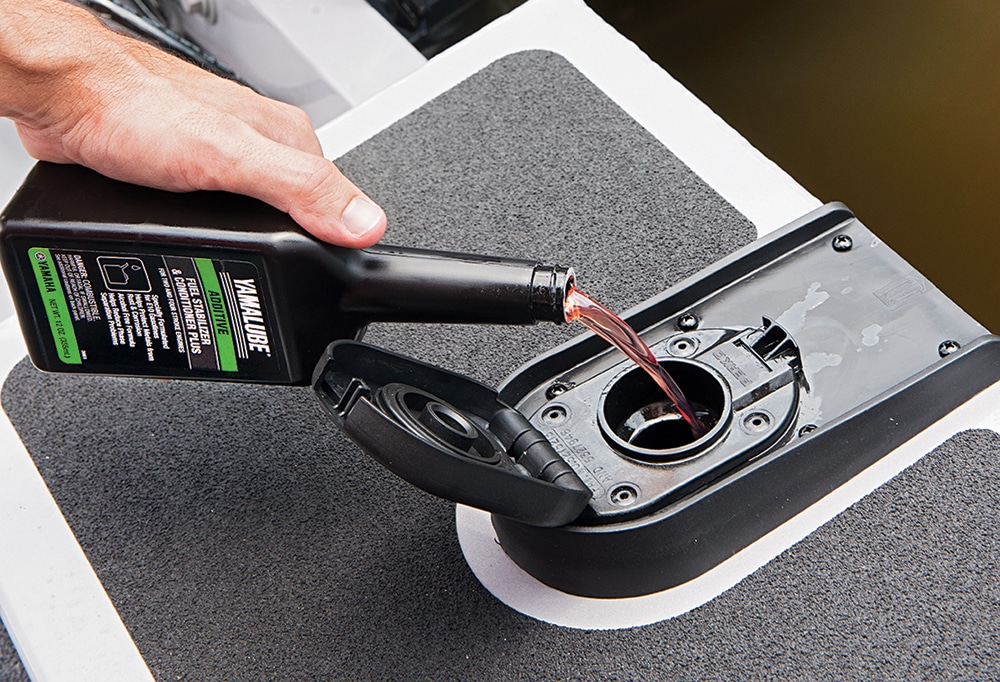
“Our service department can perform the annual maintenance or the customers can do a lot of the work themselves,” Kortum says. “We offer a care and maintenance seminar once a year. Either way, the goal is to keep the customer boating and fishing during the season. Proper maintenance is always cheaper than repairs.”
